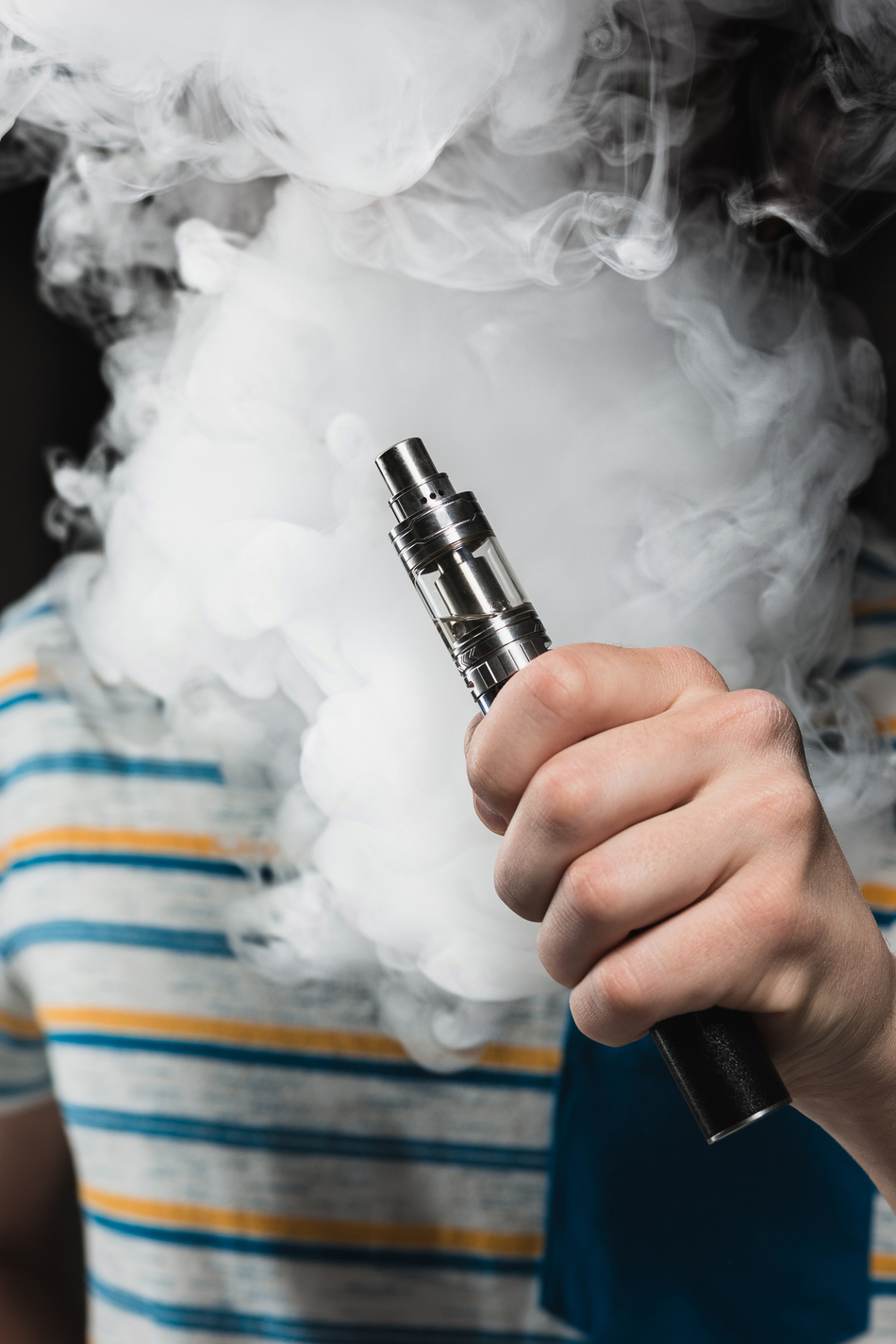
Episode Transcript
Dr. Gellner: Unless you've been avoiding all news reports, you know that vaping has become a huge problem in today's teen population. It's a problem both with the number of kids doing it and with what's in the vaping juice itself. I'll talk about why you should talk to your teens about not vaping on today's Scope. I'm Dr. Cindy Gellner.
Announcer: Keep your kids healthy and happy. You are now entering the "Healthy Kids Zone" with Dr. Cindy Gellner on The Scope.
Dr. Gellner: It's amazing how many times I'm asking questions about a child's tobacco use or exposure and the parents tell me, "Well, we don't smoke around the kids. We vape outside." Or I hear that parents have encouraged their teen to vape rather than smoke cigarettes. Most people know that cigarettes are filled with tobacco and they emit smoke. E-cigarettes or vape pens or mods which are used in vaping don't produce smoke, but more a mist that looks like water vapor.
When someone vapes, the pen basically heats up the juice or the liquid in the device, and then the user inhales the mist. The problem is that vapor is full of tiny cancer- and disease-causing chemical particles. Many parents are like, "Well, we don't use the kind with nicotine or let our kids use the kind with nicotine," which is the addictive substance in cigarettes, so they think it's a safer alternative.
There is one particularly popular vaping product JUUL, which looks like a USB flash drive, so it's easy to carry around and even hide, which is one of the reasons it's the go-to vaping device for middle and high school students. Vape juice also comes in fun flavors like fruit medley, double espresso, blueberry cheesecake, and cotton candy. Unfortunately, one flavor pod can have as much nicotine as an entire pack of cigarettes.
So what's in the vape juice anyways? Well, the main ingredients are either propylene glycol or vegetable glycerin. You've probably heard of propylene glycol before. It's the main ingredient in antifreeze. Yes, the kind you put in your car or that airports use to de-ice planes. In small amounts, the body is able to metabolize it. Too much of this will affect the nervous system, cause seizures, kidney problems or even abnormal heart rhythms.
Vegetable glycerin is a great moisturizer for your skin if put on topically,and it too can be okay to ingest. It's found in a lot of foods under the name glycerol. But inhaling it, the science is still out on that one. It does seem to be the safer of the two ingredients.
Generally speaking, unless you are inhaling a medication specifically designed to go into the lungs, inhaling anything in the lungs other than clean air probably isn't the smartest move.
The biggest toxins in vape juice are in the flavorings. Cinnamaldehyde gives a cinnamon flavor, and it's found in a lot of what we eat that's cinnamon. But note that cinnamaldehyde sounds a lot like formaldehyde. Formaldehyde is what dead bodies are embalmed in to preserve them. Cinnamaldehyde is a known skin irritant, which has been shown to inhibit mucous clearance when inhaled. Then there's o-Vanillin which tastes like vanilla but causes DNA damage. DNA damage leads to cancer. Another example is pentanedione, which gives a creamy or buttery flavor to the juice but has shown to cause lung fibrosis or stiffening of the muscles in the lungs.
Ask any pediatrician and they'll tell you vaping is dangerous and more and more kids are becoming seriously harmed or dying as a result. If you think your child may be vaping, talk to your pediatrician right away so they can help them to quit and learn the facts about how uncool vaping really is.
Announcer: Have a question about a medical procedure? Want to learn more about a health condition? With over 2,000 interviews with our physicians and specialists, there's a pretty good chance you'll find what you want to know. Check it out at thescoperadio.com.